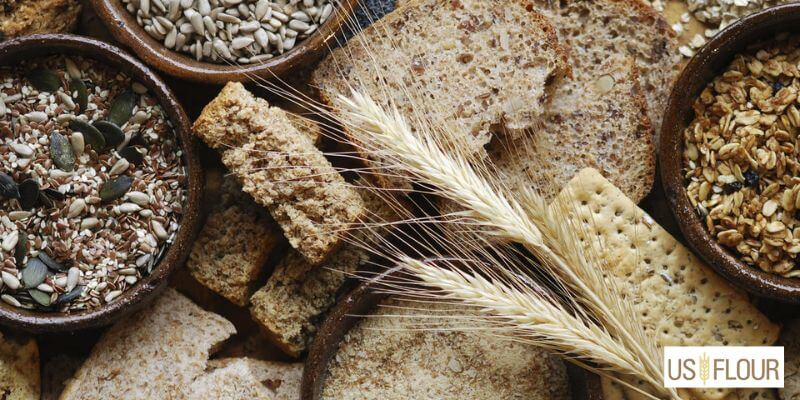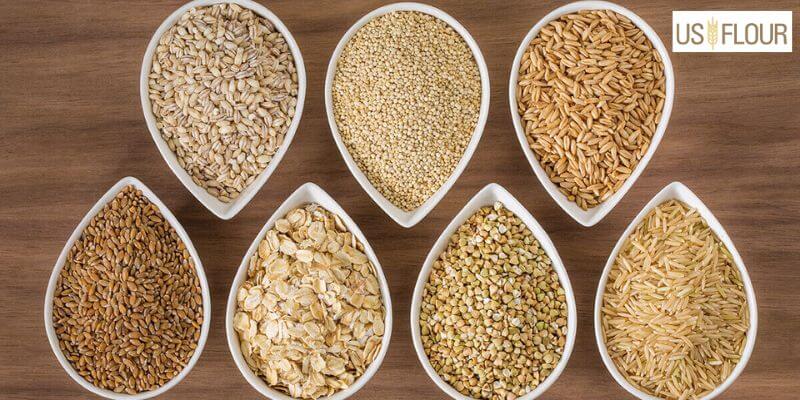The Many Benefits of Including Whole Grains in Your Diet

Recommendations from several diet advocates are that people should either eliminate or reduce the consumption of carbohydrates. However, whole grains are a category of carbohydrates, and they have essential nutrients for healthy diets. It would help to incorporate whole grains into your diet since they are high in fiber, B vitamins, and antioxidants.
What Are Whole Grains?

Whole grains comprise three parts; the bran, endosperm, and germ. Bran is the grain’s outer shell; endosperm is the layer of starchy carbohydrates; the germ is filled with nutrients. The grain’s “embryo,” the germ, contains protein and good lipids, while the bran is a good source of fiber, B vitamins, and antioxidants.
Some common examples of whole grains are brown rice, quinoa, whole-grain cornmeal, oatmeal, bulgur, wheat burry, and whole-wheat flour. Keeping track of how much whole grain you consume can take time because there are different types of whole grain. Nevertheless, they can help you eat healthily.
Benefits of Including Whole Grains in Your Diet

There are several benefits of including whole grains in your diet, including the following:
1. Rich in fiber
One important benefit of eating whole grains is fiber. Adults require between 25 and 35 grams of fiber daily, and whole grains contain soluble and insoluble forms that are good for your health.
Fiber helps you feel fuller for longer since it digests slowly. Furthermore, it has many proven health advantages, including reducing colon cancer risk, lowering LDL or “bad” cholesterol, and assisting in managing blood sugar. However, not every whole grain contains much fiber. Concentrate on oats, barley, and bulgur when trying to get enough fiber.
2. Aids digestion
There are digestive benefits to consuming whole grains too. Bowel movements are regular because of the fiber content in your diet. They also aid in preventing diverticulosis, a condition in which small pouches develop in the colon wall and cause pain, irritation, constipation, and diarrhea.
A large part of the benefit of whole grains comes from fiber, but lactic acid, which is found in large grains, also plays a role. These microorganisms support better nutrient absorption, improve digestion, and even strengthen the immune system.
3. Lowers cholesterol
Whole grains may lower blood triglyceride levels and prevent your body from absorbing fat-soluble cholesterol, which plays a significant role in developing heart disease. Generally, consuming whole grains will reduce your risk of getting a heart attack.
You can receive heart health benefits from eating any form of whole grain, such as millet, buckwheat, rye, quinoa, corn, barley, brown rice, oats, and whole wheat. Steel-cut oatmeal is superior to instant oatmeal when it comes to oatmeal.
4. Lowers blood pressure
Whole grains have additional heart-health benefits besides lowering triglycerides and cholesterol. They also lower blood pressure, which is one of the major heart disease risk factors. According to some studies, men who consume more than seven servings of whole-grain cereal per week have a lower risk of developing hypertension than men who consume one or less.
Additionally, there are advantages for women. Consuming whole grains rather than refined grains significantly decreases blood pressure, insulin, triglycerides, and cholesterol in women. Any one of these modifications should lower the risk of heart disease.
5. Helps in blood sugar regulation
Whole grains prevent blood sugar from rising too quickly compared to refined grains. In addition to other benefits, this can lower your risk of type 2 diabetes. According to some studies, women who consumed 2-3 servings of whole grains daily had a lower chance of developing type 2 diabetes than those who consumed little to no whole grain products.
Also, the risk of type 2 diabetes decreases when a third of cooked white rice is swapped for brown rice daily. For those with pre-diabetes or a high risk of developing diabetes, eating whole grains is a wise decision because they have been shown to have a preventive impact against type 2 diabetes.
6. Eases inflammation
The consumption of whole grains may ease asthma symptoms, but other inflammatory conditions may be improved by consuming whole grains too. A study found that eating whole grains like brown rice, barley, or a mix of the two decreased gastrointestinal inflammation markers.
Whole grains have also been shown to reduce C-reactive protein levels, a sign of inflammation associated with infertility, premature birth, preeclampsia, and heart disease.
7. Helps to maintain body weight
Whole grains are a great source of fiber, and fiber is used to help maintain a healthy weight over time. It is less likely to cause the body to gain weight over time if you consume a lot of whole grains.
Furthermore, compared to people who preferred doughnuts and white bread, those who consume the most popcorn, dark bread, brown rice, wheat germ, and other whole grains have a lower chance of significant weight gain.
8. Helps to redistribute fat
You might not lose weight by eating whole grains. However, the quantity of body fat you have could be reduced, and the distribution of that fat could be improved.
Specifically, it has been found that eating whole grains can reduce belly fat, referred to as “central adiposity” by scientists. This leads to lower risks of diabetes and other health issues.
Conclusion
Consuming whole wheat is good for your body. The reason for this is that it offers a variety of advantages, from high fiber content that makes you feel satisfied and full to complex carbs that aid in blood sugar regulation and reduce the risk of heart disease, diabetes, cancer, and other illnesses.
 Power to The Bakers.
Power to The Bakers.